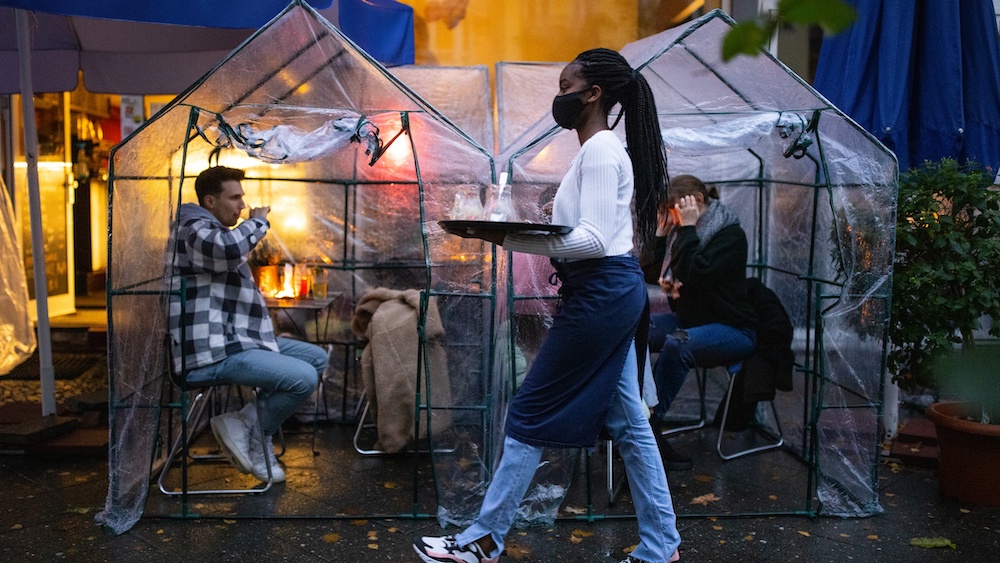If you’re interested in sharing your opinion on any cultural, political or personal topic, create an account here and check out our how-to post to learn more.
____
I am an essential restaurant worker who once opposed legislation to end the subminimum wage for tipped workers like myself. Now, I realize just how wrong I was. Ending the tipped minimum wage for workers doesn’t mean that you can’t tip your server — it just means that your server doesn’t need to rely on those tips to survive. The pandemic has made it all too clear to workers that no one can live on tips alone.
When I started in the restaurant industry, it was to make extra money during college. That is how most Americans think about restaurant workers — and that’s exactly what the National Restaurant Association, a massive corporate lobby representing restaurants like The Olive Garden, wants you to think.
For years, they have pushed the narrative that most restaurant workers are just young folks working to make additional money — and since its inception, the National Restaurant Association has used that to justify paying essential restaurant workers a subminimum wage. But like the vast majority of professionals in the industry, I eventually became a full-time restaurant worker. And like restaurant professionals in the majority of states across the country, as a waitress in our nation’s capital, I was forced to survive off tips alone. A literal legacy of slavery, from when restaurants resisted paying newly freed Black workers, the federal subminimum wage is just $2.13 and hasn’t been increased in almost three decades.
I used to think that was OK. When tips were good, they were very good. So in 2018, when I heard from other restaurant workers that the One Fair Wage ballot measure, Initiative 77, would not only end the subminimum wage and pay restaurant workers a full minimum wage, but would take away tips in DC, I was against it. And, in fact, I told other restaurant workers, and even customers who asked, that I was against the measure. When Initiative 77 passed, I was disappointed. And I cheered when the Democratic-led D.C. City Council, in a decisively anti-democratic move, reversed the will of the voters and struck down One Fair Wage. The corporate restaurant lobby’s campaign against the initiative was literally called “Save Our Tips,” and I wanted to do just that.
I now know that those were lies. The National Restaurant Association, fighting against One Fair Wage because corporate chains want to be able to pay workers as little as possible, spread the downright lie that Initiative 77 would end tipping. In fact, later I learned the opposite is true — that in states like Alaska and Washington that have One Fair Wage, rates of tipping are actually higher than in states like New York with a subminimum wage. Either way, the idea all along was to increase base wages and make tips what they were always supposed to be — an expression of gratitude and a bonus on top. But the National Restaurant Association lied to workers and voters about One Fair Wage. And I, unwittingly, helped them by spreading their lies.
Learning the facts changed my mind, but it was the pandemic that really drove home the need for reform. It was one thing relying on fickle tips as income before. I remember times in the past where customers, angry that the kitchen was out of their favorite dish or that the restaurant felt too cold, didn’t tip. Yet, that usually felt balanced out by an otherwise busy dinner service and generous tippers. But now tips are down because restaurants, if they’re lucky to even still be open, are operating at a lower capacity or doing mostly takeout. According to some reports, tips are down 50 to 75%. If surviving primarily off tips was crazy before, it’s impossible now.
Also, there are reports that sexual harassment against women restaurant workers is skyrocketing, particularly taking the form of male customers demanding women servers take off their masks so they can decide how much to tip them. It’s bad enough that our income is subject to the whims of customers. Our basic health and survival shouldn’t be, too. And studies have shown that in states that have ended the submimum wage for resturant workers, rates of sexual harassment in the industry are cut in half.
The fact is that the subminimum wage for tipped workers has only survived this long because of baseless, manipulative lies from the corporate restaurant lobby, and the pandemic exposed just how deadly and dangerous these poverty wages can be. The subminimum wage isn’t good for workers and it’s not good for a nation trying to, slowly but surely, move past its history of institutionalized racism and sexism.
I regret that I helped spread lies that actually hurt me and other restaurant workers, but now I know the truth. And the good news is, so does President Biden. That’s why he included ending the subminimum wage, and raising the federal minimum wage to $15 an hour for all Americans, in his pandemic relief package. It’s the right move for our economy, our safety and our dignity.
____
Debbie Ricks is a restaurant worker in Washington, DC. She runs the Facebook page, The Weary Server.
